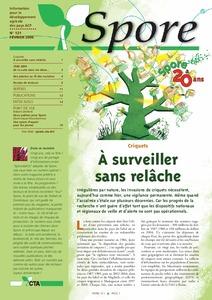Scientific Publication
Musebe, R., Karanja, D., Caneiro, E., Flood, J., Desousa, H., Sualehe, F., Day, R., Kimani, M. and Agwanda, C. (2017) Retooling cotton growers for improved productivity in Mozambique: implications of integrated crop management practices. Journal of Economics and Sustainable Development 8(8), 93–101
